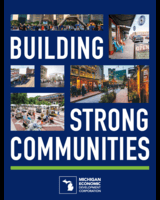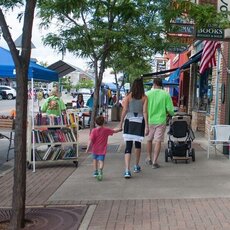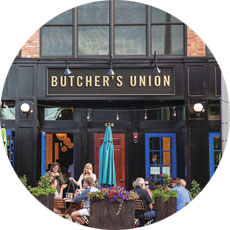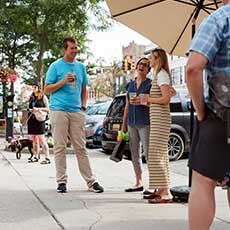Thousands of Resources, Ready to help.
Advantages
Popular

Community Development Tools
To be vibrant and competitive, Michigan communities must be ready for development. This involves planning for new investment, identifying assets and opportunities, and focusing limited resources. The MEDC supports the growth of vibrant, diverse, and resilient communities by providing economic development services and tools to attract and retain talent in Michigan communities.

View the Building Strong Communities Brochure
View BrochureTechnical Assistance

Resiliency
Many disasters, such as a pandemic, are disasters that ignore political boundaries and regional collaborative approaches are necessary. Yet the changes needed to move toward recovery happen fastest at the local level. This section explores strategies and ideas for recovery from disasters.
Investing in Place
To identify high priority projects, all MEDC place-based gap financing program investments are evaluated on a set of required primary criteria outlined in the Investing in Place guidance. In addition to required primary criteria, project competitiveness is dependent upon the number of secondary criteria the project aligns with in key categories, including Local & Regional Impact, Place, Economic & Financial + Other Considerations.
View the Investing in Place Guidance HereIncentive Programs

Brownfield Incentives and Programs
Brownfield Programs help develop walkable communities with historical architecture, provide support for mixed-use developments, help activate public spaces, and enrich arts and cultural amenities – offering a place where talented and innovative people want to live, and businesses want to grow, expand and invest.

Michigan Talent Partnership Program
The MTP is a grant program aiming to invest state funding in public space development projects to increase density, walkability, and vibrancy in Michigan’s central cities to attract and retain talent and create business ownership opportunities for local residents.
Revitalizing Michigan
Revitalizing Michigan is a video-based storytelling project that showcases communities leveraging the power of MEDC’s Redevelopment Ready Communities (RRC) toolkit and the Michigan Main Street (MMS) program to drive economic growth, revitalize historic downtowns, and create more vibrant, thriving districts.
Learn MoreCommunity Development Fact Sheets - Commercial

Business Improvement District / Principal Shopping
Through the provisions of Public Act 120 of 1961, cities, villages, and urban townships may create a Business Improvement District (BID) or a Principal Shopping District
(PSD) to promote economic development within a defined area of the municipality.

Opportunity Zone
Opportunity Zones are an outcome of the 2017 Federal Tax Cuts and Jobs Act and are set to expire at the end of 2026 unless Congress acts to extend the program. The program provides tax incentives for investment of patient capital into development projects and businesses in qualified low-income census tracts that have experienced a lack of capital investment and business growth.
Community Development Fact Sheets - Communities

Local Development Finance Authority
The Local Development Finance Authority (LDFA), Public Act 57 of 2018, allows eligible entities to establish area boundaries, create and implement a development plan, acquire and dispose of interests in real and personal property, issue bonds and
use tax increment financing to fund public infrastructure improvements for eligible property.